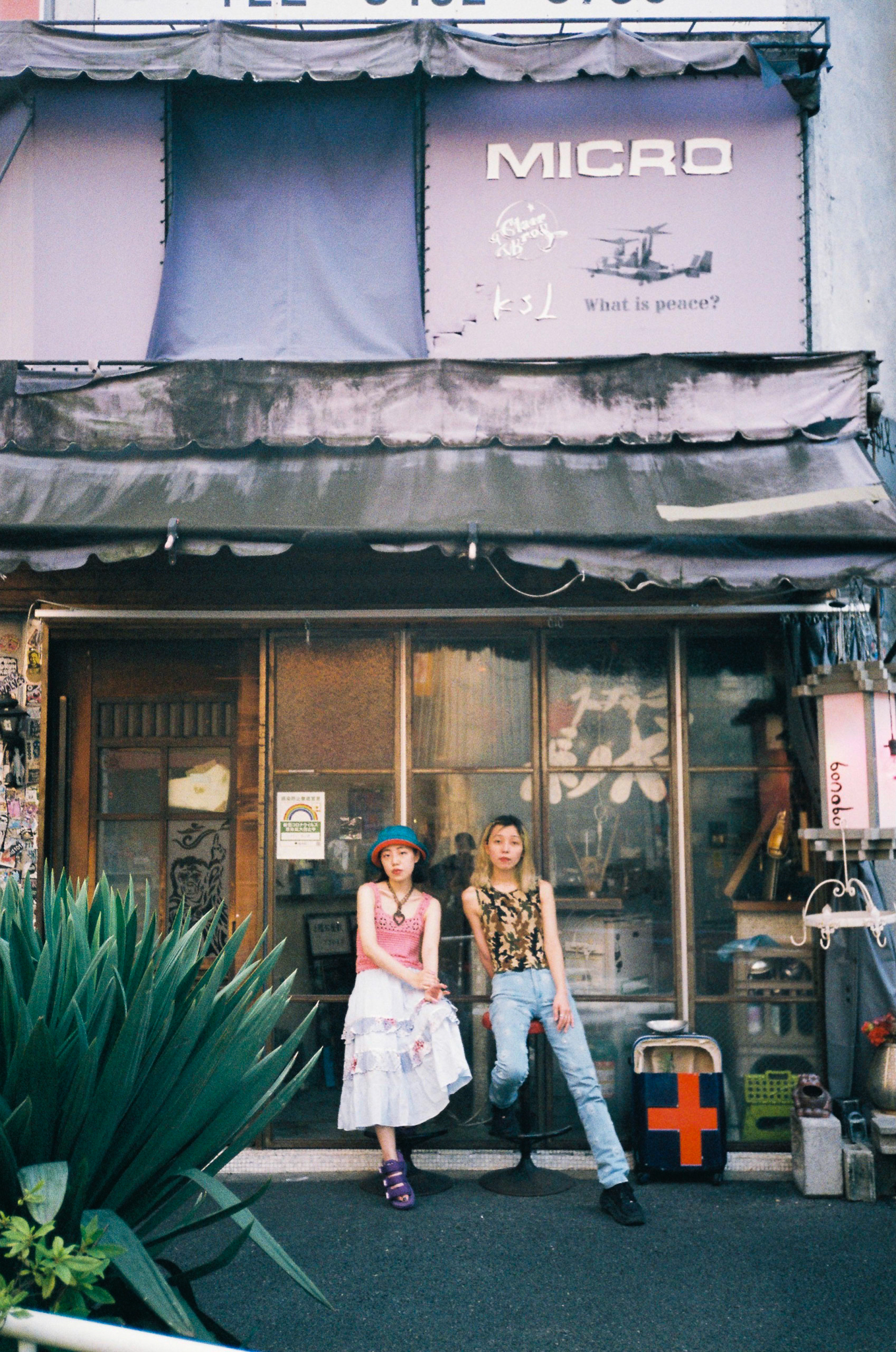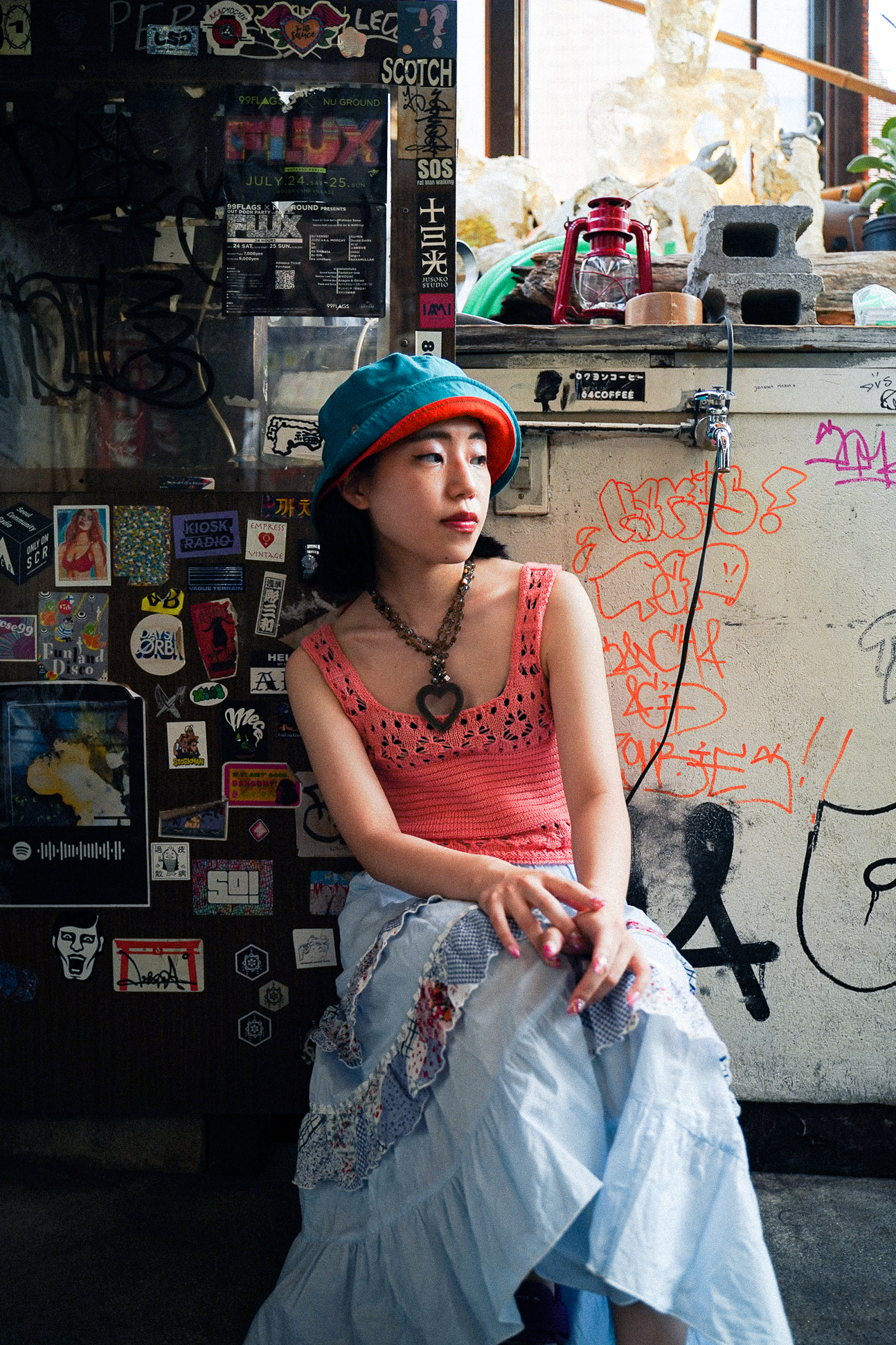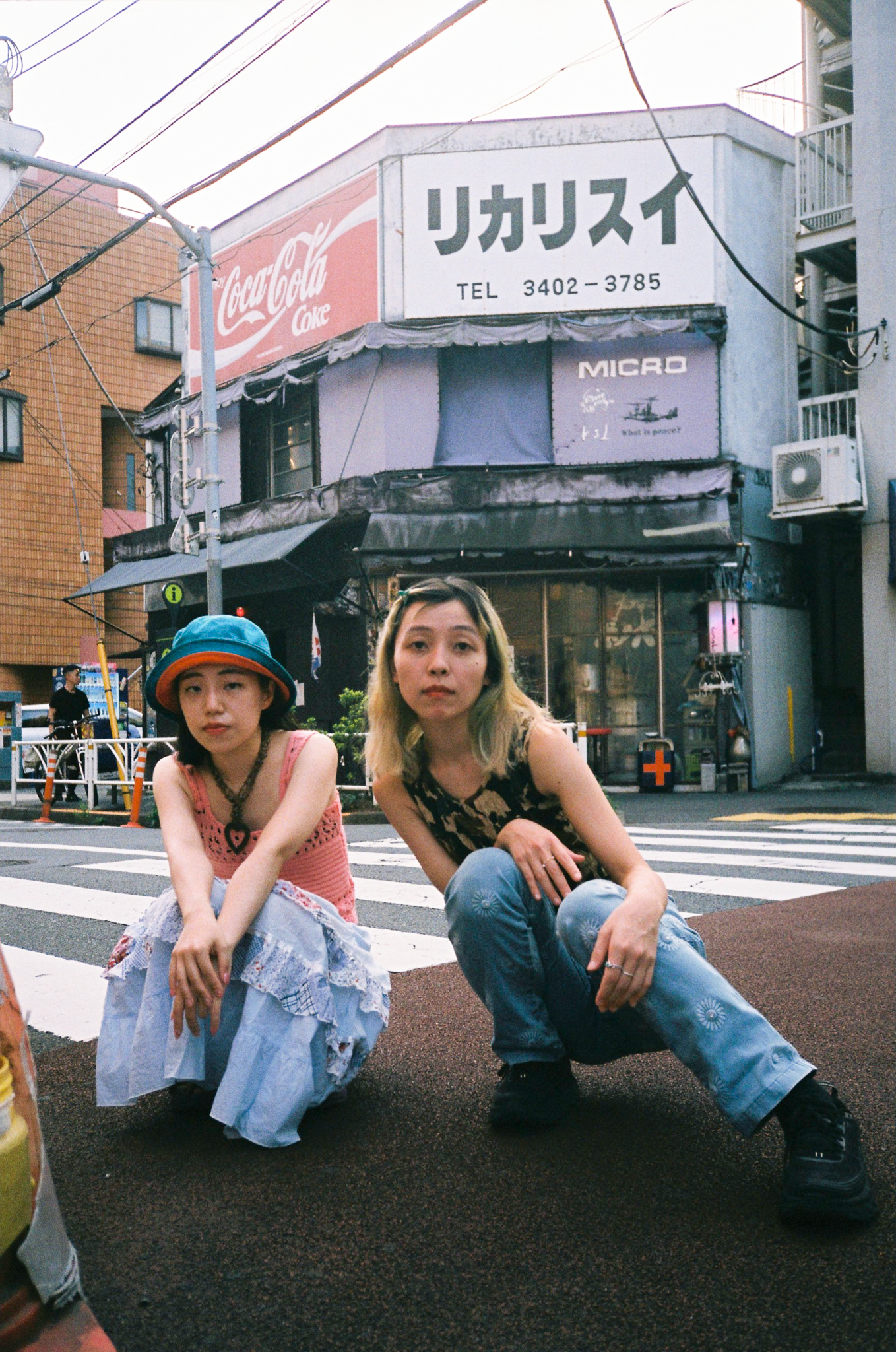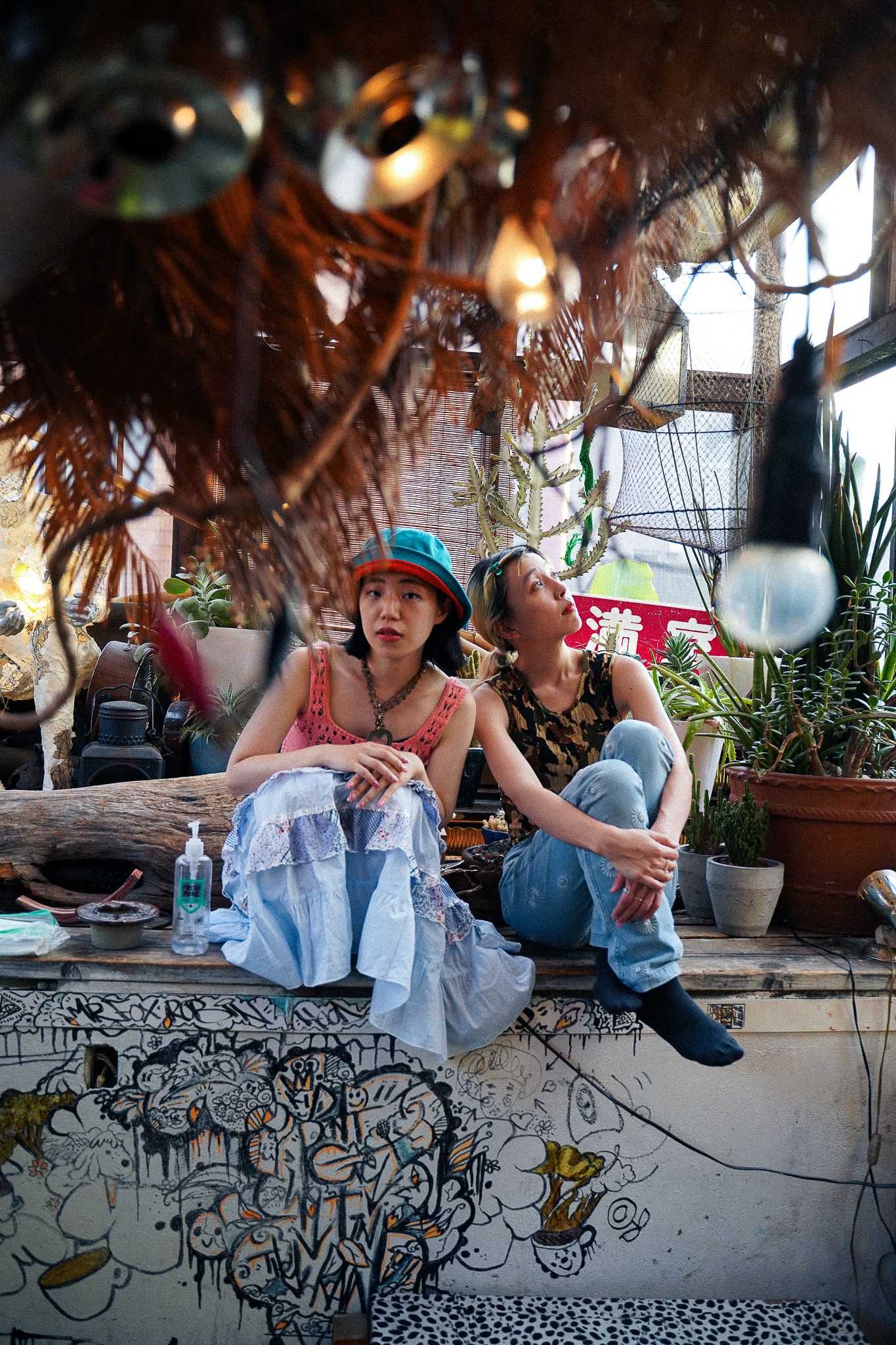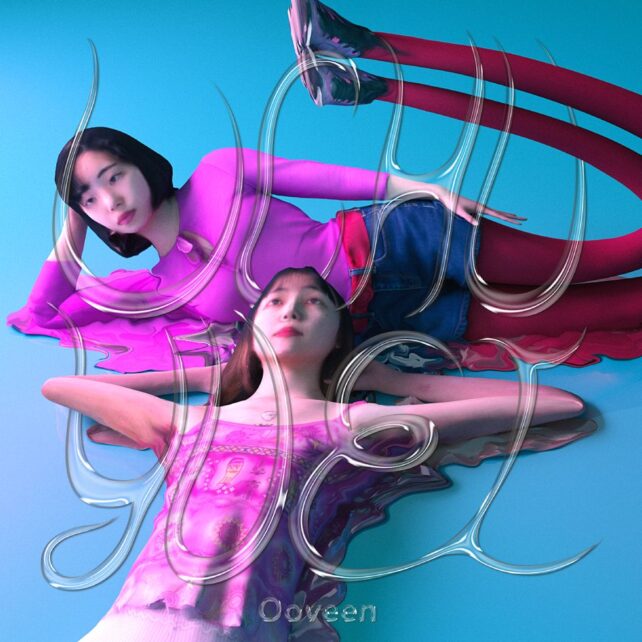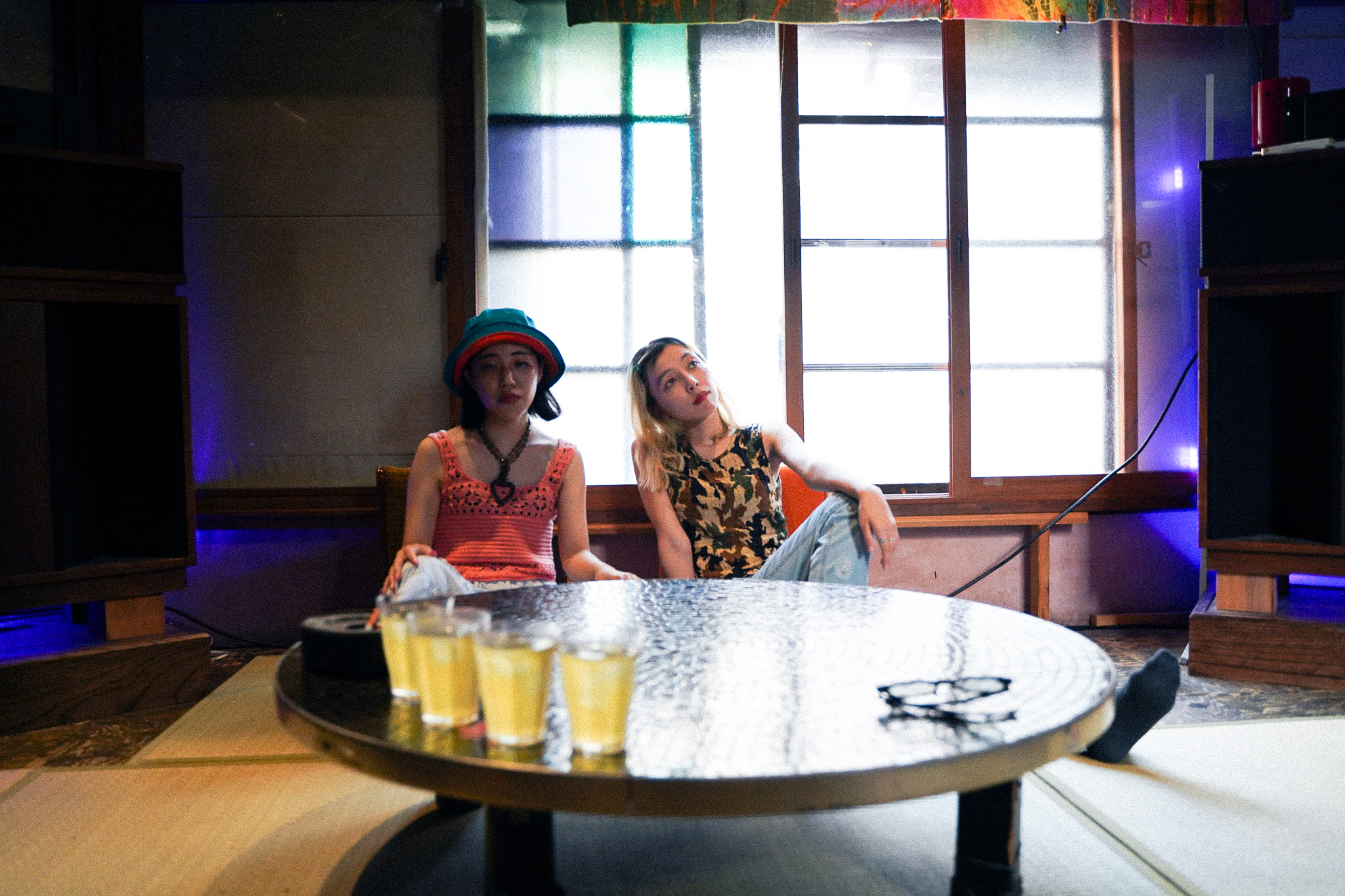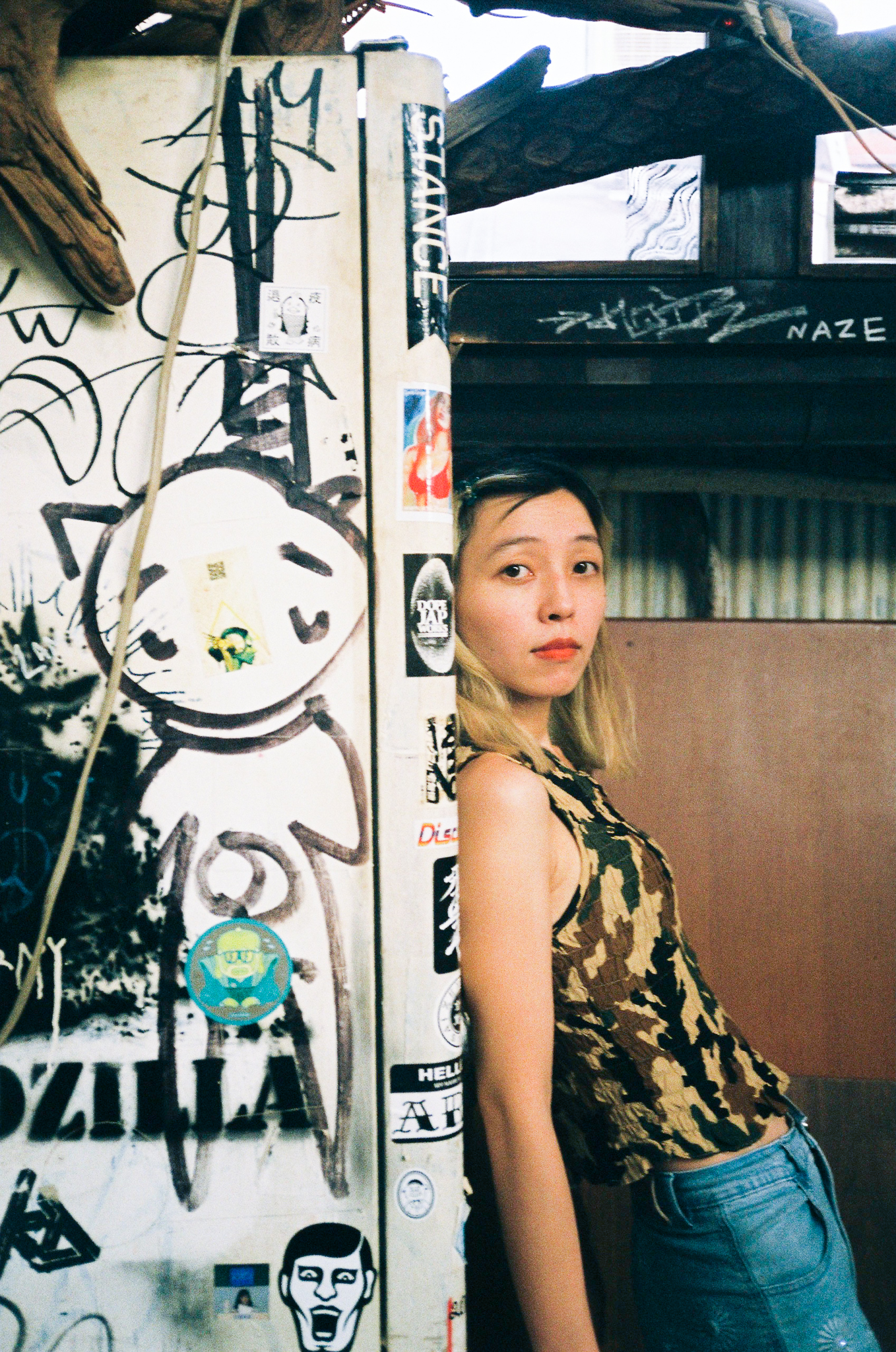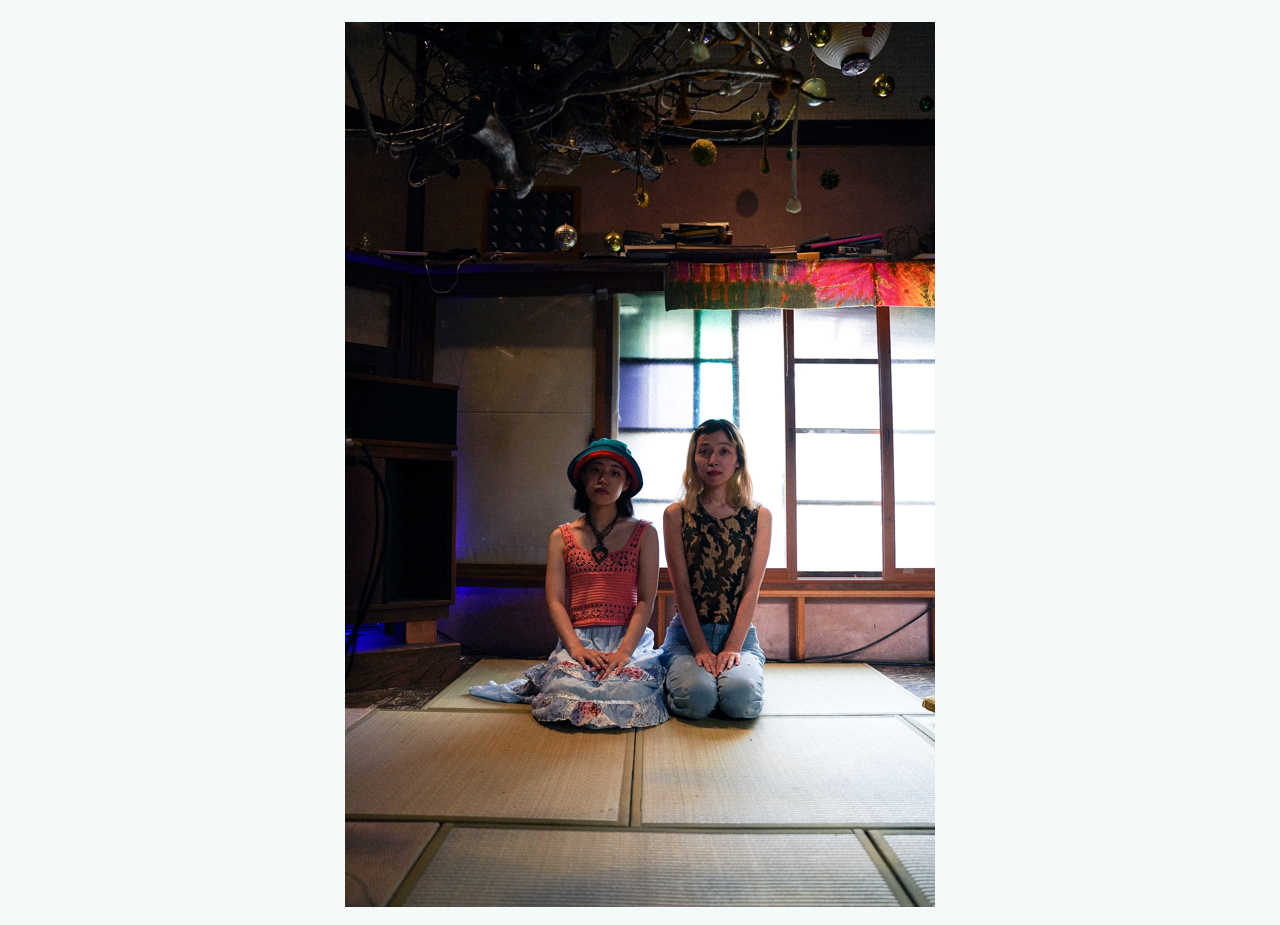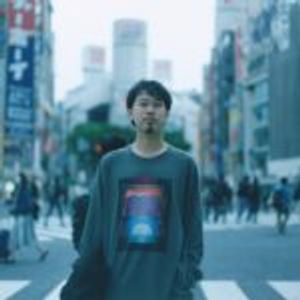These days, hip-hop is finally being recognized as a mainstream music genre in Japan. Meanwhile, in the club scene, house, techno, and electro music are gaining popularity. In this article, we put the spotlight on the two-woman electronic duo, Ooveen.
Ooveen was formed in 2020 by ery and Makiko Yamamoto, two women who had been working as illustrator-cum-designers. Although neither of them had prior career experience as musicians, they released their second album, UCHU YUEI, in the summer of 2021, soon after their formation. This album was released through music producer/DJ Olive Oil and painter/VJ Popy Oil’s creative label, OILWORKS. Ooveen also performed at Ringo Musical Festival 2021.
How did these women, who had no prior experience as musicians, start their music careers and immediately begin to thrive? We interviewed these two women, who are passionate about making music, about everything from their formation to their unrestrained music style. Let’s find out what’s next for this strong-willed duo as they continue to experiment and push forward.
Ooveen experiments while making music, as if they were cooking
ーーFirst, could you tell us about Ooveen’s formation?
ery: We’re an electro music duo that formed in April of 2020.
ーーSo you formed the duo during the state of emergency. Was coronavirus the reason behind the formation?
Makiko Yamamoto (Hereinafter Makiko): It was technically during the coronavirus, but it had nothing to do with that. We met about three, four months before the state of emergency started.
ery: We were so focused on starting music that we didn’t really care about whether it was before or after the state of emergency.
Makiko: That being said, our second show as a duo ended up being a live stream. (laughs)
ーーThe name of your duo, Ooveen, is unusual. What’s the significance behind it?
ery: Neither of us had prior musical careers. We formed the unit in the spur of the moment after we met. It all started with a lighthearted conversation, like: “I want to try making music.” “Let’s do it.” We didn’t think of ourselves as musicians.
Makiko: That was where we were at, so we started by thinking about how we could do a show together.
ery: If you press a button on a machine, it makes a sound. And if you use a sampler, that becomes a song. And if you add a drum pad, everything looks better. We went through a lot of that trial and error. So it’s okay if the equipment we use and the instruments we play keep changing, or even if we end up with only vocals. That feeling of experimenting with music felt like cooking in a kitchen. That’s how we started coming up with band names like “kitchen,” or other kitchen tools. But we scheduled a show before we’d decided on a name, so we had to submit a name for our duo. We decided over LINE that out of all the kitchen tools, an oven is a tool for heating things up, so maybe that would work. It was actually supposed to be a tentative name for the show, but we both liked how it sounded, so we’ve kept the name to this day.
ーーSo you started Ooveen right after meeting, based on this shared enthusiasm. How did you two meet in the first place?
Makiko: We had this mutual friend who was a cameraman, and he posted a story on Instagram of ery performing by herself at an izakaya. I saw that and was curious about her. Later, that cameraman and ery visited the vintage clothing shop where I was working at the time, and that’s where we met.
ーーYou performed by yourself at an izakaya?
ery: Yeah. Just a regular izakaya, not the kind of place for shows at all. But the manager there loved music and asked me to do whatever I wanted, so I did. I’d just started playing music, so there weren’t many places where I could play other than an izakaya.
Makiko: And after I asked her to play a show at bonobo in Harajuku on a day I was bartending, she invited me to play with her at a live house in Shimokitazawa. That’s how it started.
ーーSo you two started with barely any experience?
ery: I took piano lessons when I was little, and I was in a band back in high school. But using all kinds of equipment and having this sort of bedroom production style, like we do now, is a recent development.
Makiko: I played piano as a kid too, but not at the level where I can really say I played. I didn’t start music for real until recently. I started as a DJ.
A live performance by Ooveen. The two use a drum pad and a synthesizer.
ーーI see. Speaking of which, Makiko, you play a drum pad. Did you have any drumming experience?
Makiko: I’d learned the drums for about a year. But I wasn’t good enough to be like, “I play the drums!” When ery invited me to perform live, and I was wondering what I could do, I thought I could play the drums or synthesizer. Then, I bought a drum pad out of the blue just because it looked good and started using that.
ーーSo in terms of your role, you’re technically the drummer?
Makiko: I wouldn’t necessarily say that. I’m trying out the synth, and I’m experimenting with singing over a drum machine. But it’s become quite common for me to play the drum pad.
A project that includes everything from music to visuals.
ーーYour album, UCHU YUEI, was released in the summer of 2021 through OILWORKS. How did that happen?
Makiko: ery sent them an e-mail.
ery: Yeah. We were hanging out and talking about how if we were going to put in the effort to release something, we wanted to do it through a label. But we didn’t know how to do that, and we didn’t have any connections. So we figured that we could focus on sending e-mails to all the Japanese and foreign labels where our favorite artists were signed. Out of all the Japanese labels, we were most interested in OILWORKS, which had released LISACHRIS’s music. And as it turned out, OILWORKS was the label that responded to our email.
ーーWow! By the way, why did you want to release your music through a label?
Makiko: We just wanted a lot of people to hear about and listen to our music. That’s really all it was.
ery: You can’t get anywhere with music unless someone listens to it. Create and release, create and release—I think that’s basically all you can do. But on top of that, we wanted to give proper thought to how people were going to see our work. And if that was the case, we figured that we needed to release our music from a proper label.
ーーCould you tell us about the album you released through that label?
ery: We started that album without any experience making music. Making it was a process of trial and error, trying to figure out how to make an album and whether we should make music videos. But rather than becoming overwhelmed or losing momentum by thinking too deeply, we decided to just have fun with it. We felt like this production process was like the playful spirit of yuei (floating). And we also thought that making music with this attitude felt a bit like floating through space.
Makiko: We weren’t thinking about it when we recorded the songs, but a lot of them have a spacey feel. Like a budget version of space. Or a Showa-era space. A lot of people tell us that.
Ooveen “Check Check”
ーーThe CGI model vibe of the album cover and music video leaves an impression.
Makiko: Most of our videos before had a DIY feel, so we wanted to make this one a bit different and base it around CG. Of course, that doesn’t mean we didn’t like our past music videos, but we just wanted to mix it up.
ery: At first, we weren’t that interested in music videos. But it was still hard for us to get people to listen to the music on its own, so we figured that we had to use visuals as part of our strategy. So we reluctantly made a music video for our first song. We ended up having a lot of fun making the video—so much fun that now our production is based around making music videos. This time, we wanted to try CG, though it was a process of trial and error. We’re also both illustrators, and we didn’t want to be tied down to only illustrations. So we tried changing up our style.
Makiko: Thinking of Ooveen as a project that includes everything from music to visuals, rather than just music, is probably closer to what we’re doing.
Ooveen “Yuutsu NO MONEY”
ーーCould you both tell me about where you find inspiration?
Makiko: This is true of my music and illustrations, but I get my inspiration from things that are just lying around. The music I listen to in my everyday life and at parties, that kind of art that’s in the moment, is what inspires me. The people I meet on the scene who are doing cool things are a big influence on me too. And I get a lot of inspiration from ideas that come to me while dancing or my experiences.
ery: When it comes to Ooveen’s creation process, I’m conscious of trying not to overly describe the tone we’re going for in words so we don’t feel too restricted. I don’t even know what Makiko’s inspiration is, and we mostly let each other run wild.
ーーWhat do you have in common that makes it possible for your music to come together even without putting restrictions on each other’s style? For example, is it your backgrounds or the music you listen to?
Makiko: Maybe the colors that we like or want to use are similar. Also, we both like JUDY AND MARY. But I like to dig for old music, and ery likes to dig for the latest music. It’s funny how the kind of music we seek out is completely the opposite.
ーーYour style definitely has both a new and nostalgic feel.
ery: Makiko is a DJ, so she listens to dance and club music. When I go to parties that are part of Makiko’s scene, I sometimes hear songs that I can’t find through smartphone apps. I think the world that Makiko exists in is really interesting.
Makiko: I’m very analog, so I don’t have any streaming subscriptions or anything. So I don’t really know about the latest music. That’s why ery shows me things.
ーーOne big thing you have in common is that you’re both illustrators. How does that work influence your music careers?
Makiko: My career as an illustrator started with drawing album covers for DJs who I liked. Although illustration didn’t directly open the door for me as a musician, both music and illustration are connected in my career.
ery: In my case, I keep the two separate: Illustration is illustration, and music is music. For example, my illustrations show the positive and pop side of me, the fun and cheerful parts. But music shows my darker side, the underground element. So music and illustration aren’t really connected in my mind. Even people who say they like my illustrations sometimes say they don’t really care for my music.
ーーPerhaps Ooveen’s charm is that your two different worlds are connected by music. Finally, what kind of artists do you want to be in the future?
Makiko: I think it’d be great if my music could take me to all kinds of places. I’d love it if my music led to interesting encounters in interesting places.
ery: This is still a work in progress, but it’d be great if a lot of people could see how we enjoy music in all kinds of ways. That’s why I want to become famous while pursuing the music I love. If I don’t get people to listen to my music first, nothing will happen.
Ooveen
Formed in April of 2020, Ooveen is an electro music duo consisting of trackmaker ery and DJ Makiko Yamamoto. Both ery and Makiko Yamamoto also work as illustrator-cum-designers. The duo mainly performs in clubs, live music venues, and galleries. Their music is characterized by a sense of ennui and a DIY space atmosphere. In June of 2021, they released their album, UCHU YUEI, through OILWORKS.
Instagram:@ooveen_music
Twitter:@ooveen
YouTube channel: Ooveen
Photography Takao Okubo
Translation Aya Apton

